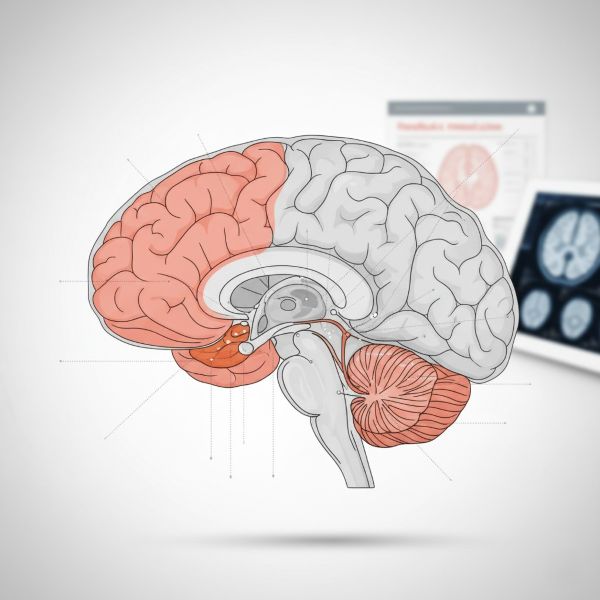Abulia
Definition and Clinical Features
Abulia (or aboulia) is a "syndrome of hypofunction" characterized by a severe lack of initiative, spontaneity, and drive (aspontaneity). Key features include apathy, slowness of thought (bradyphrenia), and a blunting of emotional responses and reactions to external stimuli. It represents a disorder of diminished motivation.

Abulia is often associated with damage to the frontal lobes and basal ganglia circuits.
Pathophysiology
Abulia may result from frontal lobe damage, most particularly that involving the frontal convexity. It has also been reported with focal lesions of the caudate nucleus, thalamus, and midbrain. It is likely that lesions anywhere in the "centromedial core" of the brain—a network connecting the frontal lobes to the brainstem—may produce this clinical picture by disrupting circuits critical for motivation and goal-directed behavior.
Associated Conditions and Causes
Pathologically, abulia may be observed in various conditions, including:
- Infarcts in the anterior cerebral artery territory and ruptured anterior communicating artery aneurysms, causing basal forebrain damage.
- Closed head injury
- Parkinson’s disease, sometimes as a forerunner of a frontal lobe dementia
- Other causes of frontal lobe disease, such as tumors or abscesses
- Metabolic and electrolyte disorders, including hypoxia, hypoglycemia, and hepatic encephalopathy
Clinical Significance and Treatment
Abulia can be confused with the psychomotor retardation of depression and is sometimes labeled as "pseudodepression." It is also considered by some to be a minor or partial form of akinetic mutism, and there may be clinical overlap with catatonia. Distinguishing abulia from these conditions is important for accurate diagnosis and management.
Treatment is directed at the underlying cause where possible. There is anecdotal evidence that the dopamine agonist bromocriptine may be beneficial in some cases by modulating the affected motivational circuits.
References
Abdelgabar A, Bhowmick BK. Clinical features and current management of abulia. Progress in Neurology and Psychiatry 2001; 5(4): 14,15,17
Bhatia KP, Marsden CD. The behavioral and motor consequences of focal lesions of the basal ganglia in man. Brain 1994; 117: 859-876
Fisher CM. Abulia. In: Bogousslavsky J, Caplan L (eds.). Stroke Syndromes. Cambridge: CUP, 1995: 182-187
Cross References
Akinetic mutism; Apathy; Bradyphrenia; Catatonia; Frontal lobe syndromes; Psychomotor retardation
